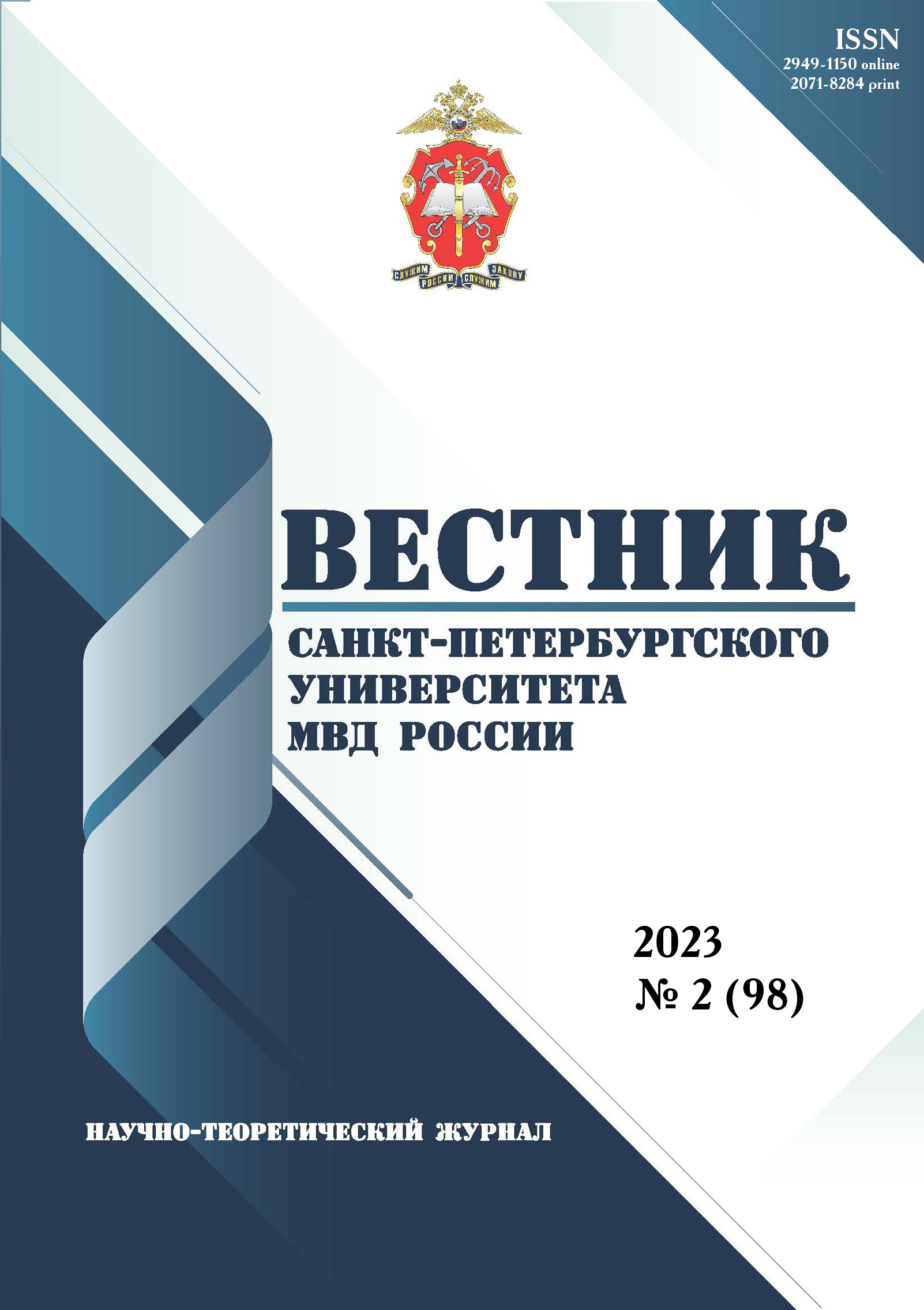employee from 01.01.2021 until now
Russian Federation
UDC 378.147
Introduction. Under the conditions of dehumanization of the social sphere, collapse of intergenerational links, loss of culturally appropriate meanings of self-realisation in professional activity, the content of the concept «professional training» requires rethinking. The correlation between its teaching and educating components is to be realized. Following the logic of passport specialty 5.8.7 «Methodology and Technology of Professional Education», it is necessary to make an «anthropological turn» in professional training, the conceptual description of which today is reduced to the extremely practice-oriented process of equipping a student with knowledge, skills and abilities necessary for a particular work activity. A humanistic-anthropological methodology is proposed by the author of this article as the basis for this process. Research methods: analysis of scientific and pedagogical literature, conceptual analysis, historical and pedagogical analysis, hermeneutic procedure. Research results. The historical and pedagogical analysis made it possible to identify the value constant of the national culture of understanding of labor and professional activity. It consists in the adult taking personal and professional position based on the awareness of the inseparability of personal and social significance of his own work. This tradition was interrupted in the post-perestroika period, when the utilitarian and material approach to the choice and implementation of professional activity prevailed. This was particularly detrimental to the professions dedicated to serving the community (teachers, doctors, the military, including the police). The humanitarian-anthropological approach allows designing the professional training as a support of human potential of a student by creating conditions for the development of his subjectivity in the educational environment of the eventful professional community through reflective practices. The methodological logic of designing a particular subject-specific professional training programme on the basis of the structure of interactive training cycle proposed by M.V. Clarin is described.
professional training, adult education, humanitarian-anthropological approach, personalprofessional position, professions dedicated to serving the community, educational organisations of the Ministry of Internal Affairs of Russia
1. Belyaeva A. P. Integral'naya teoriya i praktika mnogourovnevogo nepreryvnogo professional'nogo obrazovaniya : monografiya. - Sankt-Peterburg: IPTO RAO, 2002. - 238 s.
2. Vyhovanec V. S. Ponyatiynyy analiz i ponyatiynoe modelirovanie // Upravlenie bol'shimi sistemami. - 2021. - Vypusk 92. - S. 64-109. DOI: https://doi.org/10.25728/ubs.2021.92.4.
3. Grigor'eva A. I. Pedagog kak professional'nyy vospitatel': teoriya i tehnologiya podderzhki professional'nogo razvitiya pedagogov shkoly. - Tula: IPK i PPRO TO, 1999. - 144 s.
4. Derkach A. A. Metodologo-prikladnye osnovy akmeologicheskih issledovaniy : monografiya. - Moskva: Izdatel'stvo RAGS, 1999. - 391 s.
5. Ilakavichus M. R. Antropopraktiki v obrazovatel'nom processe organizaciy vysshego obrazovaniya sistemy MVD Rossii // Prepodavatel' HHI vek. - 2021. - № 4-1. - S. 79-86.
6. Klarin M. V. Innovacionnye modeli obucheniya. Issledovanie mirovogo opyta : monografiya. - Moskva: Luch, 2016. - 640 s.
7. Onushkin V. G., Ogarev E. I. Problema gramotnosti v kontekste social'nyh peremen // Chelovek i obrazovanie. - 2006. - № 8-9. - S. 44-49.
8. Ostapenko A. A. Stremlenie k sovershenstvu lichnosti kak antropologicheskaya strategiya nacional'no orientirovannogo obrazovaniya Rossii // Bereginya. - 2016. - № 2 (29). - S. 189-192.
9. Popov A. A., Averkov M. S., Gluhov P. P. Petr Schedrovickiy kak antropolog: na stranicah novoy knigi // Obrazovatel'naya politika. - 2019. - № 1-2 (77-78). - S. 130-140.
10. Popov A. A., Ermakov S. V. Didaktika otkrytogo obrazovaniya : monografiya. - Moskva: Nacional'nyy knizhnyy centr, 2019. - 252 s.
11. Rossinskiy A. G. Duhovnye cennosti pravoslaviya v russkoy muzyke konca XX veka // Duhovnost' sovremennogo obrazovaniya i religiya. - Barnaul: AltGPA, 2011. - S. 70-74.
12. Slobodchikov V. I. Tipologicheskiy analiz nauchno-tehnologicheskih podhodov v sovremennom obrazovanii // Izvestiya VGPU. - 2010. - № 4. - S. 4-8.
13. Slobodchikov V. I., Zverev S. M. Nauchno-tehnologicheskie uklady i podhody v professional'nom obrazovanii. Vvedenie v antropologiyu obrazovaniya. - Vyp. II. - Moskva: Sputnik+, 2014. - 190 s.
14. Chistyakova S. N. Problema samoopredeleniya starsheklassnikov pri vybore profilya obucheniya // Pedagogika. - 2005. - № 1. - S. 19-26.
15. Schedrovickiy P. G. Vvedenie v filosofskuyu i pedagogicheskuyu antropologiyu. Raboty 1981-1996 godov. - Moskva: Politicheskaya enciklopediya, 2018. - 359 s.
16. Batyshev S. Ya. Podgotovka rabochih professionalov. - Moskva: Rossiyskaya akademiya obrazovaniya, 1995. - 246 s.














